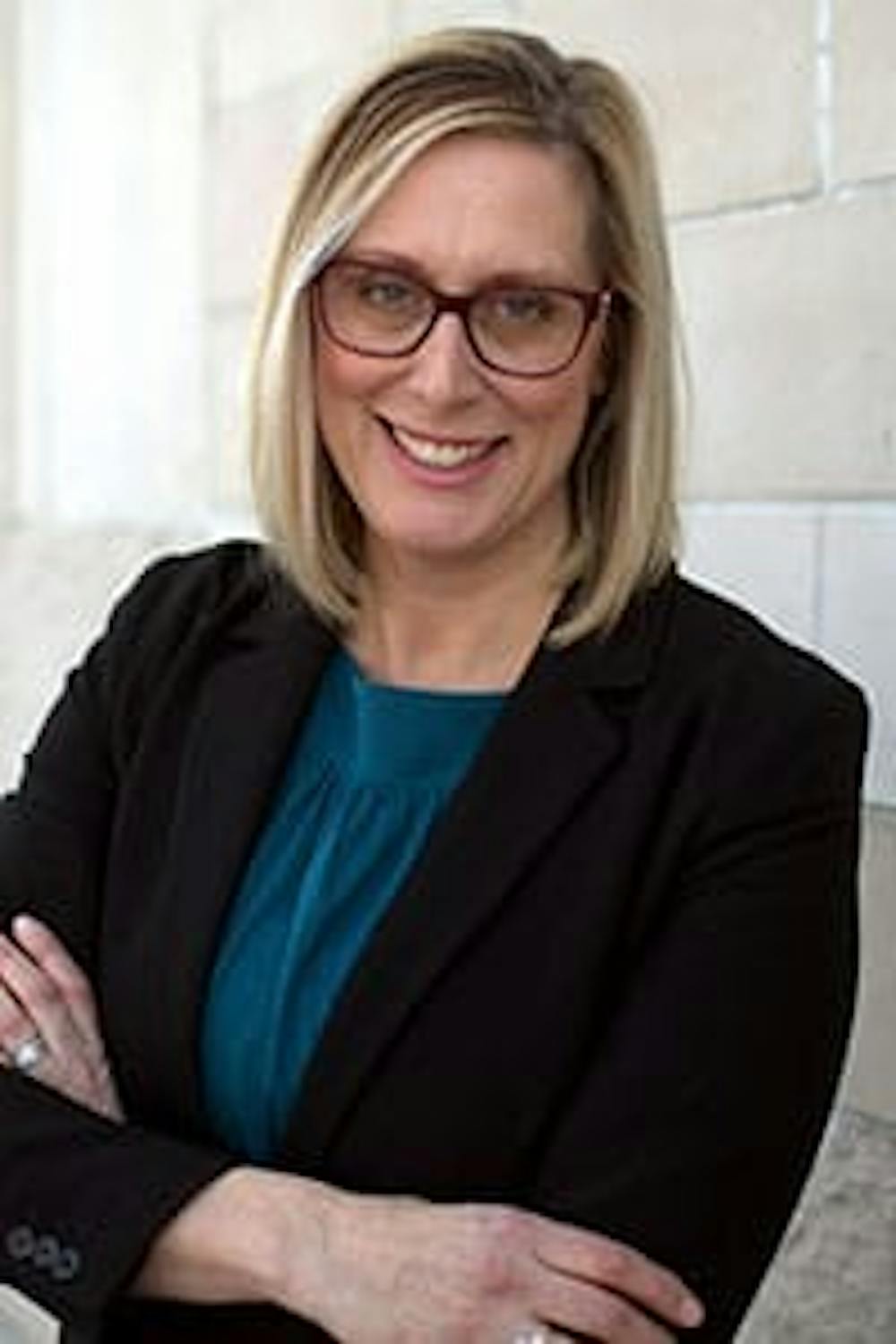Title IX Coordinator Lasher hired at Ohio State
Lasher will serve as an associate vice president at Ohio State University effective Aug. 1
Katherine Lasher is leaving Central Michigan University after serving as Title IX coordinator and executive director of the Office of Civil Rights and Institutional Equity since 2013.
Effective Aug. 1, Lasher will serve as associate vice president of the Office of Institutional Equity at Ohio State University. Lasher's appointment was announced in a University Communications press release on May 8.
In 2012, Lasher was appointed assistant director of OCRIE. She was one of three finalists for executive director in 2013 after former executive director Jeannie Jackson retired. During a candidate forum, Lasher said her experience as a lawyer in Cincinnati helped her learn about laws regarding diversity and fairness, and made her aware of changes in affirmative action and immigration laws.
"(The next director) is going to have to get the message out about these changes," she said during the forum. "How they are affecting the university, how they're affecting our students, if there's going to be changes to our protocol, and you need somebody who knows how to do that and is comfortable doing that. I think a lawyer is a great person to do that."
Lasher developed and implemented CMU's first comprehensive sexual misconduct policy in March 2015. As a way to increase the number of reports OCRIE receives, the policy requires all faculty and staff to report incidents to the Title IX coordinator – commonly known as mandatory reporting.
Students raised concerns about the policy change after it was implemented. Critics of the new policy said it could discourage students from reporting because they may want to tell a resident assistant or professor, but don't necessarily want to launch a formal investigation through OCRIE.
Between Jan. 1, 2017 and Dec. 31, 2017, OCRIE opened 268 files under the sexual misconduct policy. The office only investigated 19.
In addition to developing the university's sexual misconduct policy, Lasher also created the #ConsentisCentral social media campaign, led the first Presidential Title IX Advisory Board in Fall 2018 and developed online and in-person training for students, faculty and staff on issues such as harassment, discrimination and sexual assault.
When she was being interviewed for the job as executive director of OCRIE, Lasher addressed some changes that needed to be made in the office.
Since she was already assistant director, Lasher said she knew the office was not as welcoming as it could be, and stated that as executive director she would make the office less intimidating.
In an April 2019 interview with Central Michigan Life, Traverse City junior Brin Forlenza said she did not consider OCRIE to be very welcoming when she reported her sexual assault in 2016. Forlenza said she was immediately thrown off when she got to the office. She had called the office and told the person on the phone everything that happened, and when she went there in person, she had to tell the story all over again to Lasher.
"When you're in that traumatic state, disclosing to so many people is like re-victimizing," Forlenza said. "Anytime you have to start talking about it, it's like you feel yourself in that bed with them again. You're putting yourself in that situation again every time."
Forlenza was disappointed with the appointment because Lasher said the office couldn't do anything because she was sexually assaulted by someone who went to a different college. Lasher told her about some on-campus resources for survivors, but didn't explain the options she had to file a no contact order or issue a trespass warning.
Lasher also said during the 2013 candidate forum that her focus would be to increase student engagement through freshman orientation and social media. She said she wanted to make students more comfortable with OCRIE and educate them about on-campus resources.
According to a survey conducted during the 2015-16 academic year by Mary Senter, sociology faculty member and director of the Center for Applied Research and Rural Studies, 76 percent of students did not know where the OCRIE office was located. Only 18 percent knew how to contact the Title IX coordinator.
Now completing his first year as CMU president, Bob Davies appointed a Presidential Title IX Advisory Board to review how the university investigates sexual misconduct and to provide advice for how to improve outreach.
"There is no question that we have created programs and made changes to help, assist and support survivors," Davies said in an open letter to the campus community. "However, we can, we should, and we will do more to serve and bolster our support for survivors. We must strive also to prevent occurrences of sexual assault by continuing to improve our culture of safety and security, fostering respect and dignity for all, and holding each other accountable."




